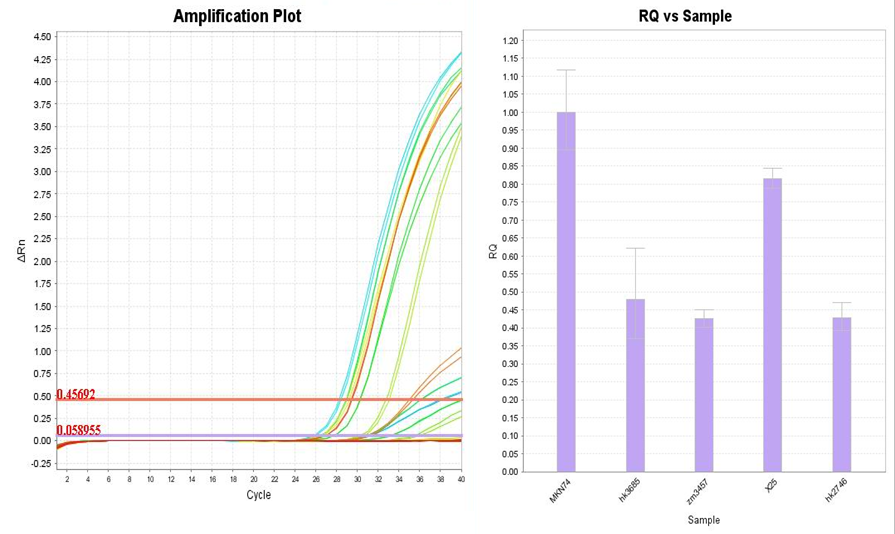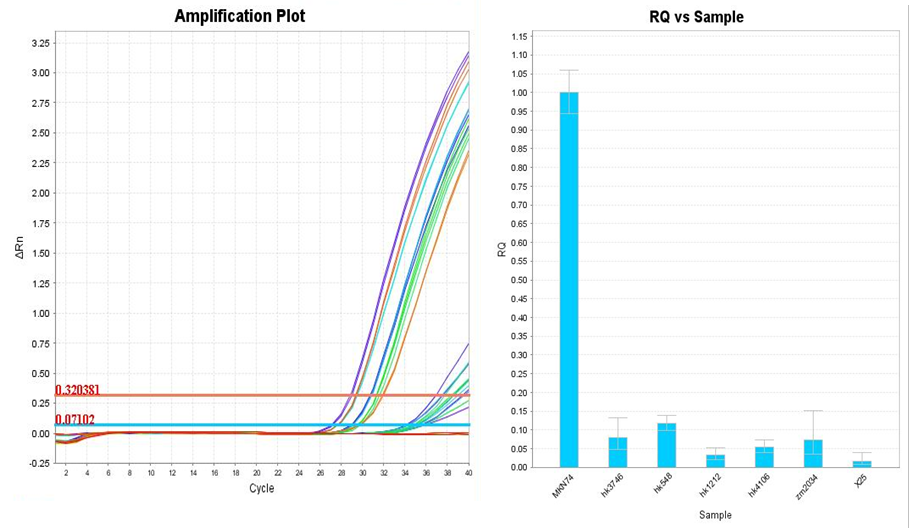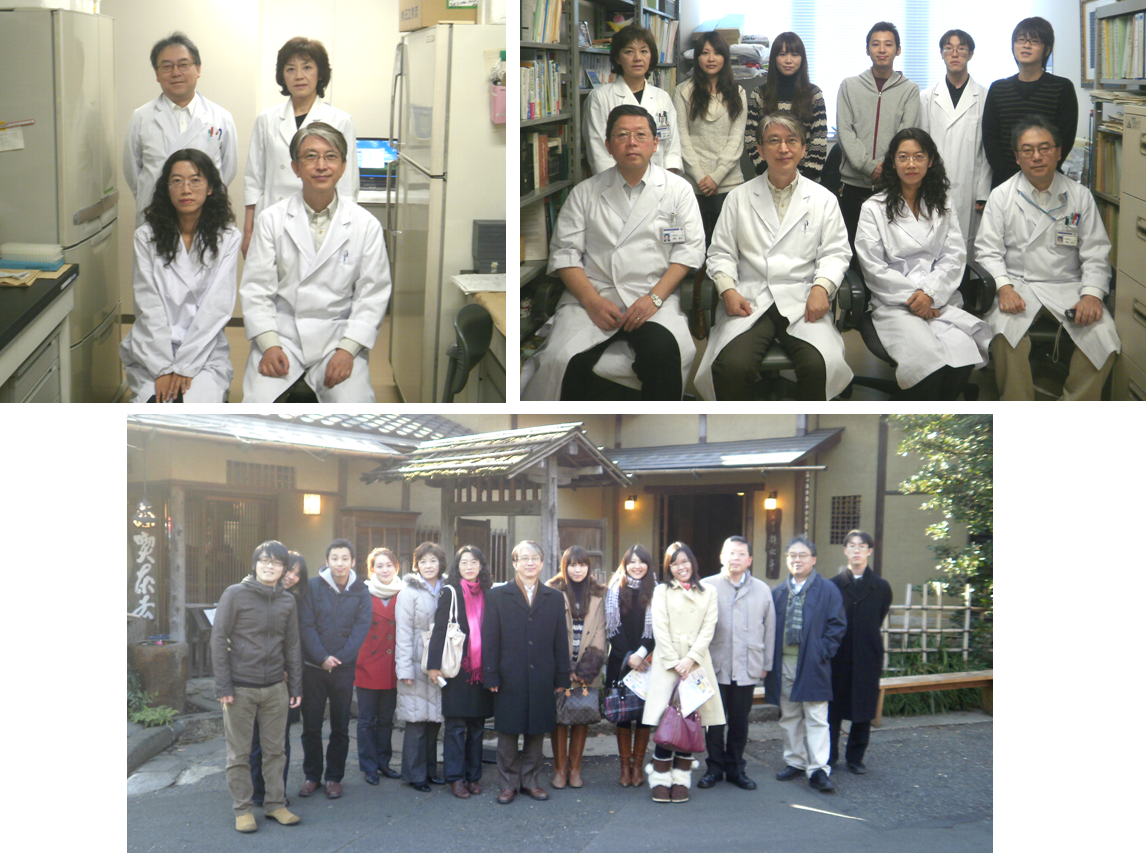Dr. Zhang from China stays in TMDU, Japan
A3 Foresight Program: Education Program for Young Researchers
Report of visit to Department of Molecular Oncology at TMDU (Jan. 15-22, 2011)
Yang Zhang (Department of Cancer Epidemiology, Peking University School of Oncology)
Host researcher
Prof. Yasuhito Yuasa, M.D Ph.D (Department of Molecular Oncology, Graduate School of Medical and Dental Sciences, Tokyo Medical and Dental University)
Summary
I visited the Department of Molecular Oncology in Tokyo Medical and Dental University for one week, as the education program for young researchers of A3 Foresight Program. The main purpose of my visit was to learn the bisulfite modification of genomic DNA and quantitative real-time MSP through which the methylation status of two genes was detected. Prof. Yuasa had already detected the methylation status of these two genes in Japanese gastric cancer patients and found significant associations with the risk of gastric cancer. We hope to use the same methods to detect the methylation status of these two genes in a Chinese population from a high-risk area of gastric cancer to confirm the relationships with the progression of gastric cancer. During my stay in TMDU, in addition to the successfully finished experiments under the kind helps of Prof. Yuasa, Dr. Akiyama and Mrs. Nagasaki, I also had a good opportunity to communicate with the cancer researchers in Japan, and built up a deep friendship with them.
Contents
1. The bisulfite modification of genomic DNA by MethlampTM One-step DNA Modification Kit
Firstly, we performed bisulfite modification of 11 leukocyte DNA samples from the patients of various gastric lesions and two DNA samples from gastric cancer cell lines including KATOⅢ and MKN74. In our laboratory, the bisulfite modification of DNA usually demands two days. Now in Prof. Yuasa’s lab, we used the MethylampTM One-step DNA Modification Kit with only two hours, which including the following steps.
(1) The fresh G1/G2/G3 solution was prepared according to the protocol.
(2) Then we added the mixed G1/G2/G3 solution to the DNA samples and incubated at 99C for 6 min followed by 65C for 90 min to convert the unmethylated cytosines to uredines.
(3) At the last, we purified the modified DNA with a spin column.
2. Conventional MSP of ACTB to confirm the qualification of the bisulfite modification of genomic DNA
In order to confirm the qualification of the bisulfite modification of genomic DNA, we performed conventional MSP of ACTB on 11 leukocyte DNA samples and two cell lines using a CpG-free primer set.

3. The analysis of the methylation status of two genes by Quantitative real-time MSP in leukocyte DNA
We detected the methylation levels of two genes in 11 leukocyte DNA samples by quantitative real-time MSP using MKN74 as the positive control. The 11 cases included 3 cases of gastric cancer, 2 cases of dysplasia, 2 cases of intestinal metaplasia, 2 cases of chronic atrophy gastritis and 2 cases of superficial gastritis. The tendency of the methylation status of the two genes in various gastric lesions was similar to the results from the lab of Prof. Yuasa. Then after I go back to China, we will use the same methods to detect the methylation status of the two genes in our lab with the samples from high-risk area of gastric cancer in China.

Figure 1: The quantitative real-time MSP: Gene 1

Figure 2: The quantitative real-time MSP: Gene 2
4. Presentation of my previous work and communication
During my stay in TMDU, I introduced my previous work “The methylation status of COX-2 promoter in gastric mucosae and leukocyte DNA”in the seminar at the Department of Molecular Oncology, TMDU, on Jan. 19. Then my presentation was followed by a good discussion with Prof. Yuasa, Dr. Akiyama, Dr. Fukamachi, Dr. Otsubo etc. They gave me very useful suggestions about my study. In addition, I also learned a lot from the research focuses of Dr. Otusbo, Mr. Hashimoto, Mr. Shimada, Ms. Champ and Ms. Mimata.
Acknowledgments and photos
I thank Dr. Akiyama for teaching me all of the experimental technique relating with the detection of methylation of the two genes, Mrs. Nagasaki for showing me the details of the quantitative real-time MSP, Dr. Fukamachi and Ms. Mimata for kindly introducing the campus of TMDU to me, Mrs. Ozawa for the thoughtful help in my daily life, and all laboratory members for their warm hospitality.
I sincerely thank Prof. Yuasa for kind acceptance and all arrangement about my visit to TMDU.




